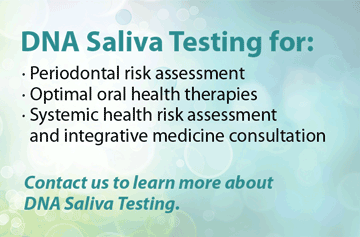
Alzheimer’s disease, a form of dementia, unforgivingly strips away a person’s memory and cognitive abilities. It gradually erodes the very essence of one’s intellect and personality, leaving an impact that extends far beyond the affected individual, touching the lives of family and friends. Recognizing the profound influence Alzheimer’s has on millions worldwide is crucial.
The onset of Alzheimer’s can often begin with subtle signs, such as minor forgetfulness or difficulty in following conversations. As it progresses, these symptoms intensify, leading to severe memory loss and a decline in the ability to carry out daily activities. This underscores the need for preemptive action to reduce risk factors associated with the disease.
Adopting healthy habits plays a pivotal role in dementia prevention. By integrating brain-healthy behaviors into daily life, you can potentially lower your risk of developing Alzheimer’s. These practices are not just about delaying onset; they also contribute to maintaining overall cognitive health throughout life.
Embrace a proactive stance towards your brain health. This article will guide you through understanding Alzheimer’s disease and offer strategies designed to fortify your mind against its advances.
Understanding Alzheimer’s Disease
Alzheimer’s disease is a neurodegenerative disorder characterized by progressive memory loss and cognitive decline. Central to this progression is the formation of amyloid plaques and neurofibrillary tangles in the brain.
Amyloid plaques are abnormal clusters of protein fragments, known as beta-amyloid, that build up between nerve cells. Neurofibrillary tangles, on the other hand, consist of twisted strands of a protein called tau that accumulate inside cells. Both these phenomena interfere with the normal functioning of neurons, leading to their eventual death.
As Alzheimer’s disease advances through stages – from mild to moderate to severe – it introduces a variety of symptoms. In the mild stage, individuals may experience memory lapses such as forgetting familiar words or names or losing everyday objects. As the disease progresses to the moderate stage, confusion and forgetfulness increase and individuals may start needing help with routine tasks. By the time Alzheimer’s reaches its severe stage, individuals lose their ability to communicate effectively and require full-time assistance with daily activities.
Memory function is one of the most profoundly affected aspects of cognition in Alzheimer’s disease. Early signs include difficulty remembering recent events or conversations. As the disease progresses, individuals may forget long-term memories as well, including significant life events or faces of loved ones.
Understanding these aspects of Alzheimer’s disease is crucial for recognizing early warning signs and taking proactive measures against this debilitating condition.
The Link Between Lifestyle and Alzheimer’s Risk
Understanding the intricate relationship between lifestyle choices and cognitive health is crucial in addressing modifiable risk factors for dementia. Specific habits and behaviors can either elevate or reduce one’s likelihood of developing Alzheimer’s disease. Here are key lifestyle elements that play a role:
- Diet
Nutrition exerts a profound impact on brain health. Diets rich in fruits, vegetables, whole grains, and lean proteins, such as the Mediterranean diet, are linked to a lower incidence of cognitive decline. - Exercise
Regular physical activity boosts cardiovascular health, which is directly connected to brain function. Studies indicate that even moderate exercise increases blood flow to the brain, which can stave off the development of Alzheimer ‘s-related pathology. - Social Engagement
Staying socially active fosters cognitive resilience. Interacting with others stimulates the brain and may defend against the accumulation of harmful proteins known to contribute to Alzheimer’s disease.
Evidence points to mental stimulation as another powerful tool in this battle. Engaging in challenging cognitive tasks, learning new skills, or even playing strategic games can fortify neural connections and promote neuroplasticity, thus potentially delaying the onset of symptoms associated with Alzheimer’s.
By integrating these practices into daily life, individuals can wield control over their long-term brain health and diminish their risk of encountering Alzheimer’s disease in the future.
Tips for Maintaining a Brain-Healthy Lifestyle
To minimize Alzheimer’s risk, implementing certain habits can contribute to a healthier cognitive function. Here are some key Alzheimer’s prevention strategies.
- Dietary Recommendations
Nutrition plays a significant role in brain health. It is essential to incorporate antioxidant-rich foods into your daily diet. Berries, dark chocolate, and leafy greens are excellent sources of antioxidants, which combat harmful free radicals in the body that can damage brain cells.
Focus on omega-3 fatty acids as well, found in fish like salmon, tuna, and mackerel. Omega-3 fatty acids aid in building and repairing brain cells, contributing to cognitive health. - Physical Exercise
Physical activity is another pillar of a brain-healthy lifestyle. Regular exercise promotes proper blood flow to the brain and enhances neuronal connections. Whether it’s brisk walking or practicing yoga, any form of consistent physical activity can significantly reduce Alzheimer’s risk. - Mentally Stimulating Activities
Engaging in mentally stimulating activities preserves cognitive function. Consider activities such as puzzles, reading, or even learning a new language. These cognitive exercises keep your mind active, creating new neural pathways and strengthening existing ones.
These healthy habits form the backbone of Alzheimer’s prevention strategies. By intertwining these practices into your daily routine, you can actively contribute towards maintaining brain health and reducing the risk of Alzheimer’s disease.
Other Protective Measures Against Alzheimer’s
Sleep Quality
Prioritizing sleep quality is crucial in the fight against Alzheimer’s disease. During sleep, the brain performs essential detoxification processes, removing harmful waste products such as excess amyloid proteins. Sleep also plays a pivotal role in memory consolidation, where the brain converts short-term memories into long-term ones. Aim for 7-9 hours of uninterrupted sleep per night to facilitate these vital functions.
Social Engagement
Maintain active social engagement. Interacting with others stimulates the brain and can lead to a lower risk of cognitive decline. Engage in regular conversations, join clubs or groups that interest you, and seek out social activities that encourage mental stimulation.
Brain-Healthy Lifestyle Strategies
Adopting a comprehensive brain-healthy lifestyle involves several other strategies:
- Stress Management: Chronic stress can negatively impact the brain, leading to cognitive problems over time. Techniques such as mindfulness meditation, deep breathing exercises, and yoga can help manage stress levels effectively.
- Regular Health Check-Ups: Monitor your cardiovascular health as it directly affects brain health. Regular check-ups with your healthcare provider can help manage blood pressure, cholesterol levels, and other factors that may contribute to Alzheimer’s risk.
By incorporating these protective measures into your daily routine, you create a robust defense against Alzheimer’s disease. Moving forward, understanding genetic factors will further enhance your personalized approach to prevention.
The Role of Genetics in Alzheimer’s Risk and Prevention
Genetic factors play a significant role in an individual’s susceptibility to Alzheimer’s disease. Researchers have identified several gene variants that affect the likelihood of developing the condition, with ApoE4 being the most well-known risk factor. Individuals carrying one or two copies of this gene variant have an increased risk of Alzheimer’s:
- Single ApoE4 allele: 2-3 times greater risk
- Double ApoE4 alleles: 12 times greater risk
However, it is essential to understand that having the ApoE4 variant does not guarantee the onset of Alzheimer’s, just as lacking it does not entirely prevent the disease.
For those with a family history of Alzheimer’s, early detection and risk assessment are crucial. Genetic testing can provide insight into one’s predisposition to the disease, allowing for proactive measures in lifestyle adjustments and vigilant monitoring for early symptoms. If you have concerns about your genetic risk, consider the following steps:
- Consult with a genetic counselor to discuss testing and implications for your health.
- Engage in regular cognitive assessments to track changes over time.
- Inform your healthcare provider about your family history so they can guide you through preventive strategies tailored to your needs.
Being informed about one’s genetic predisposition empowers individuals to adopt personalized strategies in preventing or delaying the onset of Alzheimer’s disease.
Promising Research and Future Directions in Alzheimer’s Prevention
Alzheimer’s prevention research is a rapidly evolving field, with scientists tirelessly working to uncover new strategies that could potentially slow or halt the progress of this devastating disease. One such promising approach is immunotherapy, which involves harnessing the body’s immune system to fight off Alzheimer’s.
Immunotherapy: A Promising Approach
Immunotherapy for Alzheimer’s mainly focuses on targeting and clearing beta-amyloid and tau proteins, the key culprits behind brain cell death in Alzheimer’s patients. These therapies are currently being tested in clinical trials, with some showing potential in reducing cognitive decline.
Exploring New Avenues: Gut-Brain Axis and Environmental Factors
Alongside these efforts, emerging areas of research interest are opening up new possibilities for Alzheimer’s prevention:
- Gut-Brain Axis: The gut-brain axis, a complex network of communication between the gut and the brain, has come under scrutiny. Researchers are investigating how changes in gut bacteria may influence Alzheimer’s development and progression. Preliminary findings suggest that a healthy gut microbiome could play a pivotal role in maintaining brain health.
- Environmental Factors: Another intriguing line of inquiry involves studying the impact of environmental factors on brain health. Factors such as air pollution, exposure to certain chemicals, and even noise levels could potentially influence Alzheimer’s risk. This research underscores the importance of creating supportive environments for brain health.
The Road Ahead: Potential Interventions
This ongoing research into potential interventions is an encouraging sign that we are moving closer to realizing effective strategies for Alzheimer’s prevention. However, as we await these breakthroughs, it’s essential not to overlook the power of lifestyle changes in reducing Alzheimer’s risk.
The Importance of Dental Health in Dementia Prevention
Research shows that taking care of your teeth and gums is not just important for your oral health but also for your brain health. There is a growing body of evidence suggesting a strong link between dental hygiene and the risk of developing dementia, particularly Alzheimer’s disease. Understanding this connection underscores the need to prioritize gum disease management as part of overall brain health maintenance.
1. Link Between Oral Health and Cognitive Decline
Chronic inflammation resulting from poor oral hygiene practices has been identified as a potential factor contributing to cognitive decline. Specifically, periodontal diseases such as gingivitis (inflammation of the gums) and periodontitis (inflammation affecting the tissues surrounding the teeth) are known for their role in promoting systemic inflammation. This chronic inflammation can lead to damage in neurons (nerve cells) and increase the likelihood of developing Alzheimer’s disease.
2. Gum Disease and Brain Function
Gum disease, characterized by symptoms like swollen and bleeding gums, may create opportunities for harmful bacteria to enter the bloodstream or directly reach the brain. This bacterial presence in the body is believed to trigger immune responses that could potentially accelerate brain degeneration processes.
3. Regular Dental Care
To combat these risks, it is crucial to establish and maintain a consistent oral hygiene routine. Here are some key steps:
- Brush your teeth twice daily using fluoride toothpaste.
- Make flossing a regular habit to clean areas between your teeth that brushing alone cannot reach effectively.
- Schedule regular visits to your dentist for professional dental cleanings and check-ups.
By adhering to these practices, you can effectively prevent or manage periodontal disease, thereby reducing potential dementia risk factors.
4. Proactive Oral Hygiene Practices
In addition to basic oral care habits, there are other proactive measures you can take to further protect your dental and cognitive health:
- Using an antiseptic mouthwash: Incorporating an antiseptic mouthwash into your routine can help reduce the presence of bacteria known to cause gum disease.
- Watching your diet: Being mindful of your dietary choices, particularly limiting sugar intake, can significantly contribute to preventing tooth decay and gum disease.
Remember, the goal is not just to have a healthy smile but also to prioritize brain health as you age. By actively managing gum disease through consistent oral care practices and making informed lifestyle choices, you are taking proactive steps toward reducing the potential impact of dementia-related conditions on your overall well-being.
Comprehensive Approach to Reducing the Risk of Alzheimer’s Disease
Adopting a comprehensive approach is critical in reducing the risk of Alzheimer’s disease. This includes:
- Embracing lifestyle modifications such as a balanced diet, regular exercise, and mental stimulation.
- Staying informed about genetic factors that may influence your susceptibility to Alzheimer’s.
- Participating in ongoing research to further the understanding of dementia prevention.
Prioritizing brain health is essential. You are encouraged to seek professional advice to support your dementia prevention efforts. Consider consulting with healthcare providers, including dentists who specialize in cognitive dentistry, for tailored recommendations.
Remember, proactive steps taken today can have a profound impact on your cognitive well-being in the future.
Embrace healthy habits, stay connected with medical professionals and keep abreast of the latest research. These actions form the cornerstone of effective dementia prevention strategies, guiding you towards a healthier brain and potentially reducing the likelihood of Alzheimer’s disease.
FAQs (Frequently Asked Questions)
What is Alzheimer’s disease and how does it impact cognitive function?
Alzheimer’s disease is a progressive neurological condition that leads to a decline in cognitive abilities, including memory, reasoning, and behavior. It affects the brain by causing the formation of abnormal protein clumps and tangled fibers, which disrupt the communication between nerve cells and eventually lead to their death.
What are some proactive measures to reduce the risk of Alzheimer’s?
Taking proactive measures to reduce the risk of Alzheimer’s involves adopting healthy lifestyle habits, such as maintaining a balanced diet, engaging in regular physical exercise, staying mentally active, getting enough quality sleep, and fostering social connections. These habits can contribute to overall brain health and help lower the risk of developing Alzheimer’s disease.
How do lifestyle choices influence the likelihood of developing Alzheimer’s?
Certain lifestyle factors can significantly influence the likelihood of developing Alzheimer’s disease. For example, a diet rich in antioxidants and omega-3 fatty acids, regular physical exercise, and engaging in mentally stimulating activities can all contribute to reducing the risk of Alzheimer’s. Additionally, maintaining cardiovascular health and social engagement have been shown to have a positive impact on cognitive health.
What are some tips for maintaining a brain-healthy lifestyle?
To maintain a brain-healthy lifestyle, it is important to focus on consuming antioxidant-rich foods and omega-3 fatty acids, engaging in regular physical exercise to promote proper blood flow to the brain, and participating in mentally stimulating activities such as puzzles or learning new skills. These practices can help preserve cognitive function and reduce the risk of developing Alzheimer’s disease.
How can genetics influence an individual’s susceptibility to Alzheimer’s?
Genetics can influence an individual’s susceptibility to Alzheimer’s disease through the presence of certain gene variants like ApoE4. Individuals with a family history of the condition may benefit from risk assessment and early detection strategies to better understand their genetic predisposition and take appropriate preventive measures.
What are some promising research areas for Alzheimer’s prevention?
Current scientific efforts are focused on developing novel preventive treatments for Alzheimer’s, including immunotherapy approaches. Emerging areas of research interest include studying the gut-brain axis and investigating the impact of environmental factors on brain health. These areas hold promise for advancing our understanding of Alzheimer’s prevention.





 The general, cosmetic and reconstructive dental practice of Encino dentist Dr. Isaac Comfortes is devoted to restoring optimal oral health, which supports whole body health and enhances the natural beauty of smiles.
The general, cosmetic and reconstructive dental practice of Encino dentist Dr. Isaac Comfortes is devoted to restoring optimal oral health, which supports whole body health and enhances the natural beauty of smiles.